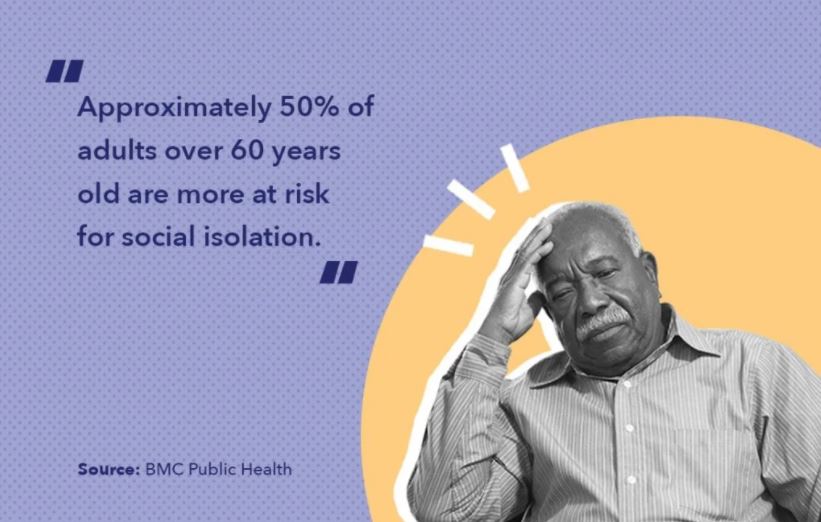Source: SLEEPOPOLiS
As we age, most of us don’t have the same vibrant social lives we did when we were young. In fact, approximately 50% of adults over 60 years old are more at risk for social isolation. (1) If you’re a senior who is experiencing isolation (or a loved one of someone who is), this article is for you.
What is Senior Isolation?
You may be tempted to think that loneliness and isolation are the same things, but they’re not. Research has shown that social isolation is the physical separation from others, such as living alone, while loneliness is the negative feelings that come from separation from others. Just like some folks can feel lonely even if they’re in a crowded room, others who live alone may not feel lonely. (2) There is, however, a link from one to the other. While the two are not the same, social isolation can cause loneliness. (3) Let’s dive into how senior isolation affects sleep, and what you can do about it.
Senior Isolation and Sleep
If you’re a senior who suffers from social isolation, you are more likely to experience insufficient sleep. (4) This is likely due, in part, to how social isolation puts you at a higher risk of anxiety and depression — both of which can negatively impact sleep.
How to Sleep Better
To get better shut-eye, you can start by reducing the negative effects of social isolation. Here are a few tips for doing so.
Get around people (if possible)
Provide support to friends, family, and neighbors. (7) You may be able to offer to go grocery shopping, clean, or cook a meal for them. According to mental health experts, having a sense of purpose can help us feel better about ourselves.
Click here to learn more.

